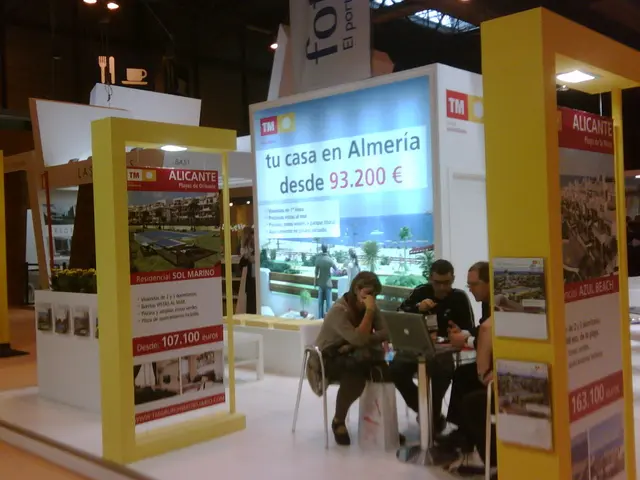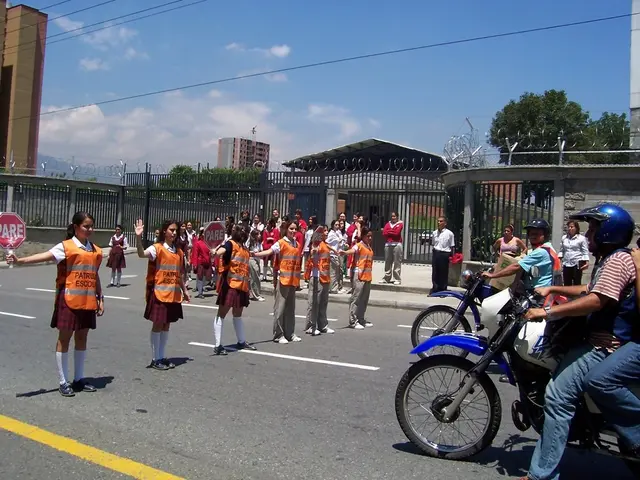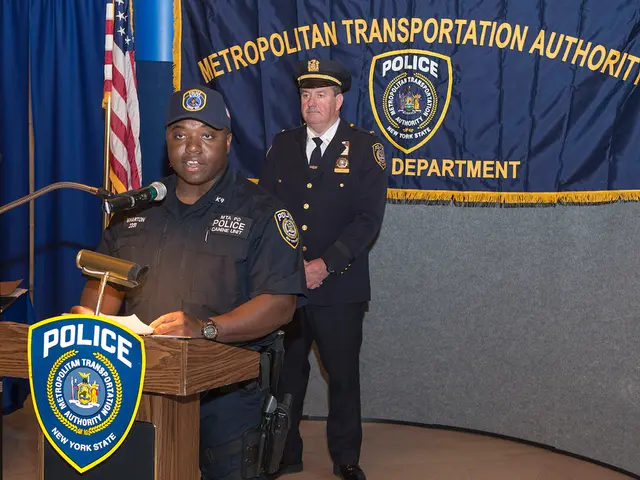Venezuela's Political Year Begins Unpredictably in 2025: Shocking Twists Abound
In Just a Few Weeks, the Tide's Turned for Maduro, Leaving Opposition Reeling
Who woulda thunk it? The initial months of 2025 sure took a unexpected twist for Nicolás Maduro and Venezuela's main opposition. As we wrap up 2024, the air was thick with anticipation for a tumultuous January - with Maduro's contentious re-inauguration on January 10 and the return of Donald Trump to the White House on January 20. But as it goes, things didn't quite turn out as planned.
The massive anti-Maduro protests announced for January 9? No-show. No military uprisings. No foreign interventions to see Edmundo González Urrutia sworn in as president. Instead, maduro's re-election process sailed through without a hitch. And the cracks within the opposition leadership? They only grew wider.
As for Trump, well...his return to the White House wasn't exactly the firestorm we expected. Instead, he made a bold move on Venezuela: sending his special envoy, Richard Grenell, to meet with Maduro at the Miraflores presidential palace under a "zero agenda" framework. Fancy talk for a fresh start in bilateral relations.
And let's talk about that meeting, shall we? The tone was friendly, and Marco Rubio, one of the Bolivarian Revolution's biggest critics, suddenly went quiet. Grenell came back to the states with six American citizens who'd been locked up in Venezuela, and Chavismo called the non-withdrawal of Chevron's license to operate in Venezuela's oil sector a victory. Talk about an unexpected start to Trump's second term.
Shift in Migration and Deportation Policies
But that's not all. To mix things up even more, Venezuela's state airline, Conviasa, started flying to the US to return undocumented Venezuelan immigrants - and believe it or not, they're doing it with some class. These folks are coming home in style, and even Interior Minister Diosdado Cabello, one of Washington's most hated faces, welcomed them at the airport! Crazy, right? This contrasts sharply with the treatment of Brazilian and Colombian migrants.
This change makes a big dent in the narrative that paints Venezuelan immigrants as criminals or members of the Tren de Aragua gang. And here's another blow: it's outed the opposition's questionable handling of humanitarian aid and their reckless push to claim asylum based on false political persecution claims.
The Venezuelan government is keeping a wary eye on Trump, though. They're not exactly calling him their new BFF, but it's clear that they're playing a different game now compared to his first term. Back then, economic sanctions were tightening, unilateral coercive measures were off the charts, and the White House backed the fake "interim government" led by Juan Guaidó - a move that left Venezuela's foreign assets, like Citgo, up for grabs.
USAID's unexpected flip-flop
Then came Trump's decision to cut funding for US Agency for International Development (USAID) programs supporting Venezuelan opposition parties, NGOs, and media outlets for three months. This move vindicated claims by the Venezuelan government that there's been a continuous flow of funds from the Global North to support destabilization efforts.
This financial hit is a tough pill for the opposition sector that's become reliant on foreign funds to the point where they seem more concerned about securing cash than winning votes.
But the consequences go further than just the opposition. USAID's decision shook the media landscape, as many outlets were created and maintained with USAID and other US government-linked funds. And let's not forget the scandals that have surfaced, with reports of funds ending up in the personal accounts of political leaders. Ouch!
The turmoil caused by Trump's USAID decision has left key figures of the failed "interim government" stumbling, while they struggle to deal with the falling expectations surrounding the January 10 inauguration. The alliance between Maria Corina Machado and Edmundo González Urrutia is weakening too.
To Vote or Not to Vote
Meanwhile, Chavismo is making the most of the opposition's mess. Since the start of the year, they've established a national dialogue table, set dates for parliamentary and gubernatorial elections, and proposed a constitutional reform project. The revolutionary leadership is calling all the shots right now.
Trapped by an all-or-nothing strategy, Maria Corina Machado is doubling down on calling for an electoral boycott, widening the rift between her faction and the opposition sector advocating participation to build a viable alternative to Chavismo in the medium term.
But history shows that the opposition's electoral boycotts serve only to intensify Chavismo's hold on power. They did it with the 2005 parliamentary elections, with the opposition completely absent from the National Assembly from 2006 to 2010. The opposition also skipped elections between 2017 and 2022, including the 2018 presidential race. As a result, Chavismo regained control of the National Assembly, returning to strength in regional and municipal offices.
So, here's the situation for Venezuela's opposition forces: they've got some tough decisions to make, and the clock's ticking. The main question: participate in the April 27 parliamentary elections? If they choose to abstain, it's game over for them. Chavismo will lock in their current majority in the National Assembly, paving the way for new laws, constitutional reforms, and a tighter grip on power.
This article is a revised and restructured version of an original piece written by journalist and political analyst Clodovaldo Hernandez, who won the National Journalism Prize in 2002. The views expressed in this article are the author's own and do not necessarily reflect those of the Venezuelan editorial staff. This piece has been translated from Spanish.
- The unexpected turn of events in 2025 has left the Venezuelan opposition reeling, as Nicolás Maduro's re-election process surprisingly sailed through without complications.
- In a surprising turn, Venezuela's state airline, Conviasa, started flying to the US to return undocumented Venezuelan immigrants in a classy manner, challenging the narrative that portrays Venezuelan immigrants as criminals or members of the Tren de Aragua gang.
- Donald Trump's second term has seen an unexpected shift in migration and deportation policies, with Venezuela marking a stark contrast in the treatment of returning undocumented immigrants compared to Brazilian and Colombian migrants.
- The Venezuelan government is keeping a wary eye on Trump, as his decision to cut funding for US Agency for International Development (USAID) programs supporting Venezuelan opposition parties, NGOs, and media outlets for three months vindicated claims by the Venezuelan government that there's been a continuous flow of funds from the Global North to support destabilization efforts.
- The turmoil caused by Trump's USAID decision has left key figures of the failed "interim government" stumbling, while they struggle to deal with the falling expectations surrounding the January 10 inauguration.
- The Venezuelan opposition forces are currently faced with a challenging decision: participate in the April 27 parliamentary elections or risk losing their chance to influence policy and legislation, as a potential boycott could leave them out of power and pave the way for new laws, constitutional reforms, and a tighter grip on power by Chavismo.








